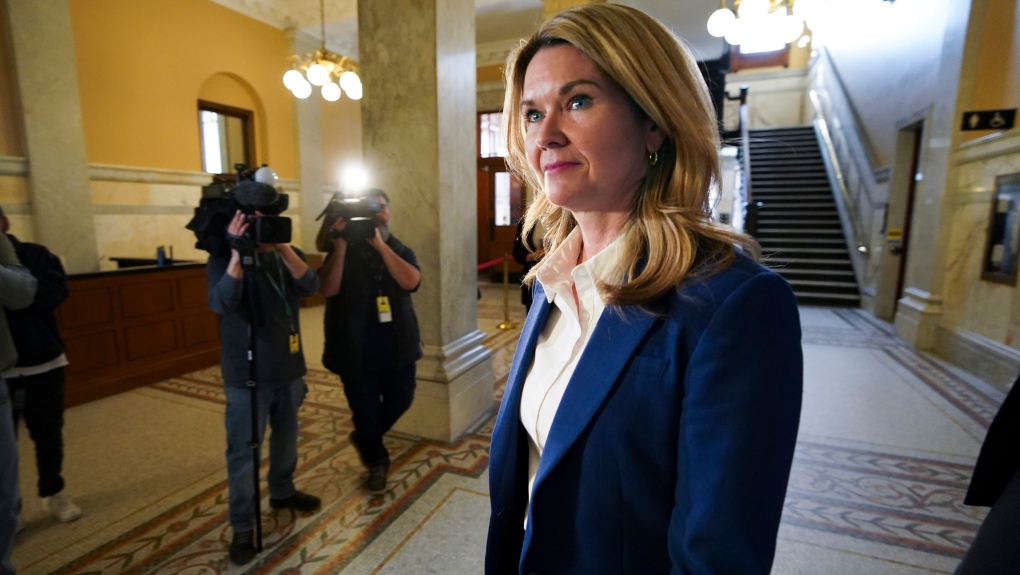Ontario School Boards Facing Deficits: Depleting Reserves Amid Budget Pressures
Published: October 3, 2024
An increasing number of Ontario school boards are grappling with financial deficits and are resorting to using or depleting their reserve funds, according to internal documents from the Ministry of Education. This concerning trend has surfaced despite claims from Education Minister Jill Dunlop that overall, school boards are in good financial health.
The situation is more complicated than it may appear. Briefing documents obtained by The Canadian Press through a freedom-of-information request reveal that while the Progressive Conservative government has made strides in boosting the education budget, these increases have not kept pace with inflation. As a result, many school boards are compelled to dip into their savings meant for significant projects, thereby impacting day-to-day operations and leading to cuts in essential services.
According to the ministry documents, “Sector-wide, school boards are maintaining a healthy reserve level; however, some school boards have depleted or are projected to deplete their reserves over the next few years.” This statement paints a stark picture of the financial landscape facing these boards, which historically have reported surpluses in their financial statements.
The trend of deficits is alarming. The number of school boards reporting in-year deficits has surged from 11 in 2020-21 to 31 in 2021-22, slightly decreasing to 29 in 2022-23. Currently, ministry officials have indicated that 31 boards are facing in-year deficits amounting to a staggering $200 million.
An official from the Ministry of Education suggested that deficits should not automatically be viewed as negative, explaining that they often arise from accounting practices: “A deficit just means that it’s money that’s set aside for a future purpose.” This nuanced perspective on financial management is essential, but it does not diminish the real impacts that these deficits have on students and educational opportunities.
Kathleen Woodcock, president of the Ontario Public School Boards’ Association, underscored the broader implications of these financial challenges. “If they keep dipping into their reserves or making cuts, the student impact is that students don’t have the best education opportunities,” she stated. This situation is particularly concerning for students needing specific courses for post-secondary education.
Woodcock’s comments highlight the need for adequate funding across the sector to ensure that all students receive the educational resources they deserve.
In response to these financial struggles, a spokesperson for Minister Dunlop stated that since 2018, the government has increased public education funding by 20 percent, along with a remarkable 136 percent increase for addressing aging infrastructure and other capital expenditures. “Overall, school boards are in good financial health, with an accumulated surplus of $1.3 billion,” Edyta MacKay remarked, emphasizing the disconnect observed in some boards regarding financial management.
The ministry documents further reveal pressing capital cost challenges faced by school boards, noting that the average age of schools is over 40 years. The lack of dedicated funding for modernization is a significant barrier, as boards must allocate their limited renewal funding primarily for existing building components.
A moratorium on school closures, initiated by the Liberal government in 2017, continues to strain budgets, as boards find themselves using renewal funds to maintain schools that might otherwise have been closed. This temporary measure has persisted for seven years, with no indication of a resolution from the current government.
Additionally, the ministry is collaborating with boards on mitigation plans regarding reinforced autoclaved aerated concrete, an issue that has not yet been fully factored into renewal needs. While this does not appear to be a widespread problem currently, Woodcock acknowledged that some boards have the budgets to manage necessary repairs.
As the challenges facing Ontario school boards become increasingly complex, it is clear that sustainable solutions are needed to ensure that students receive the high-quality education they deserve. The focus must shift towards addressing funding shortfalls and enhancing financial management practices across the board.
Source: Swifteradio


